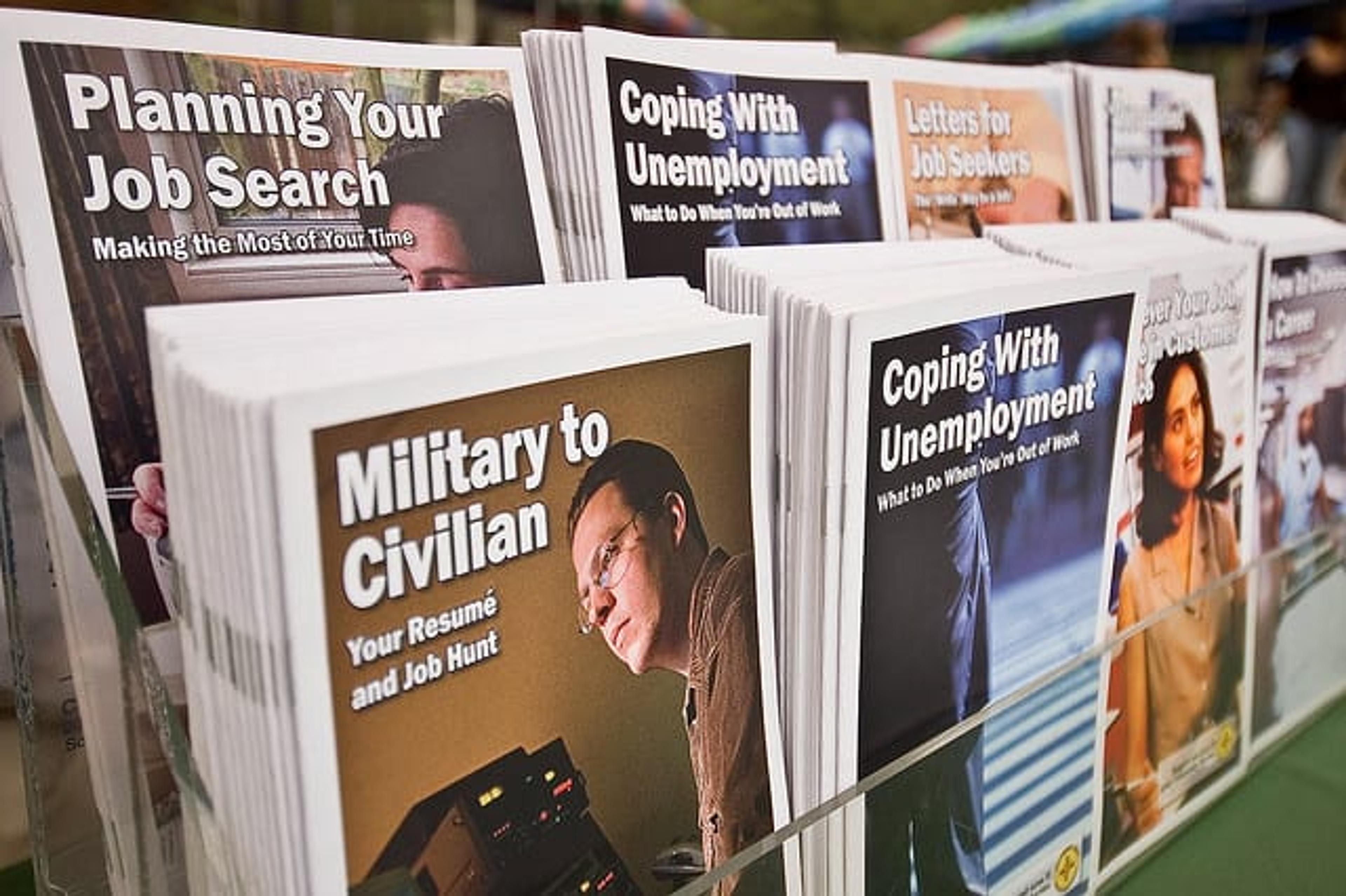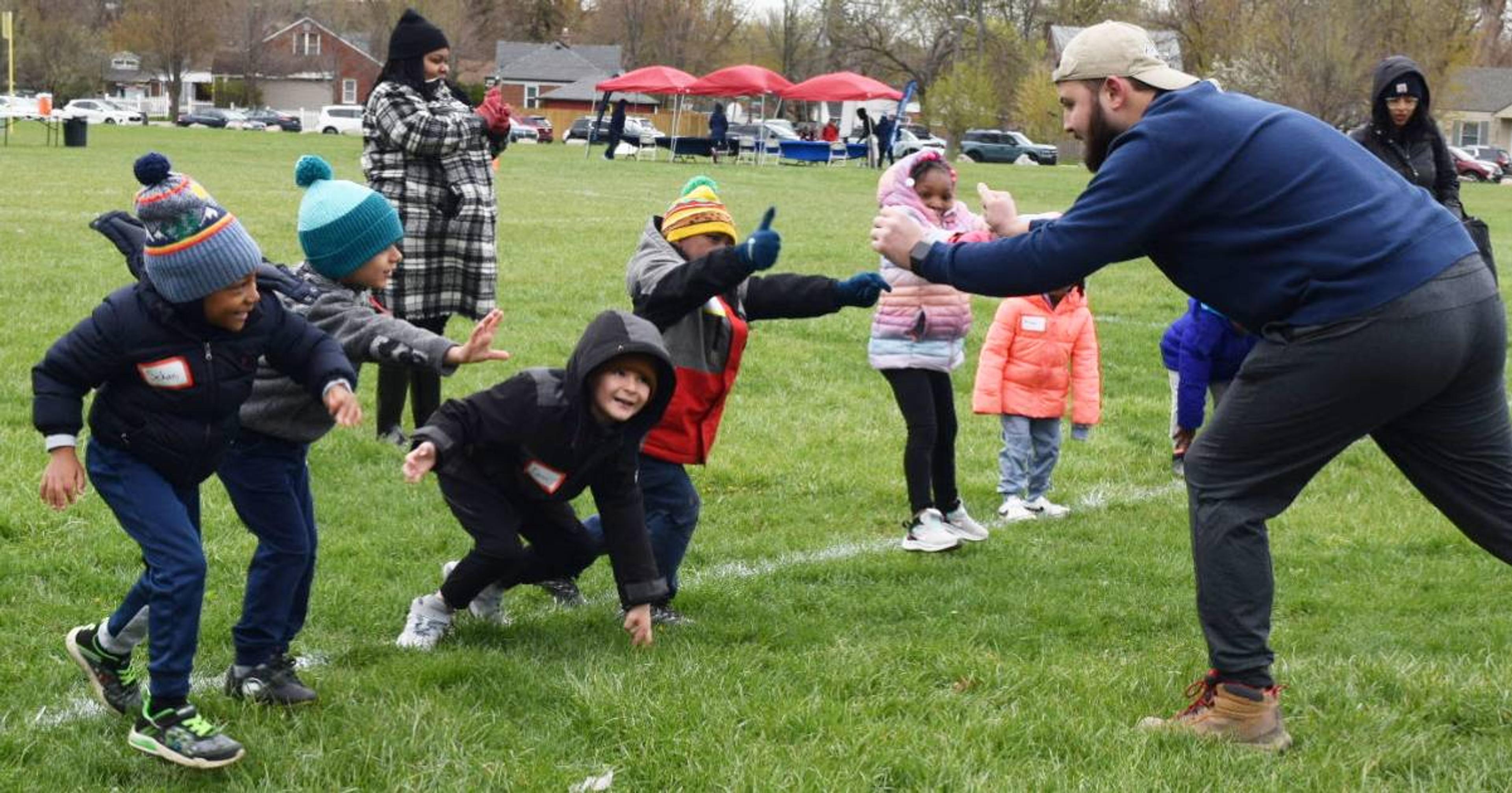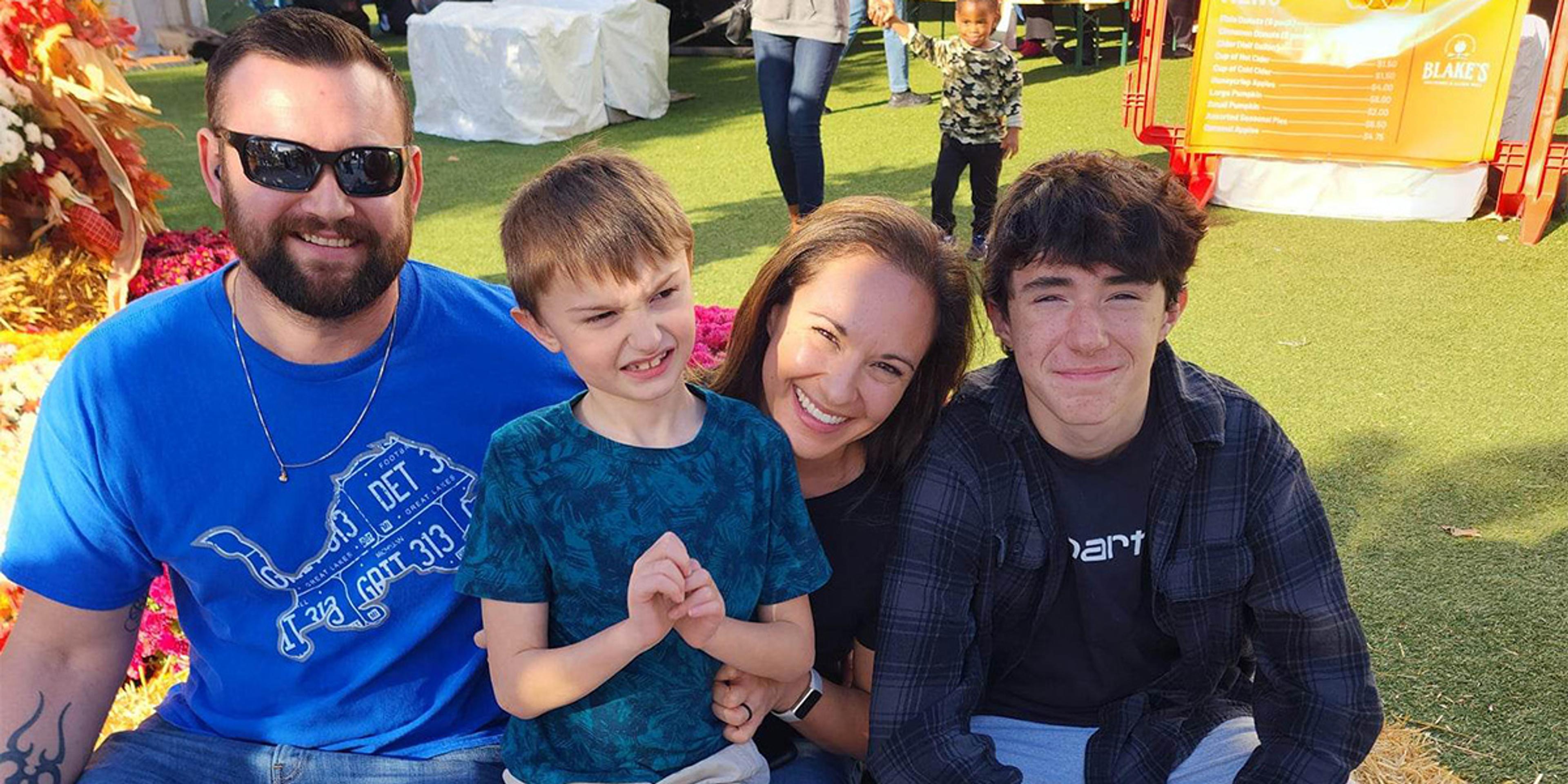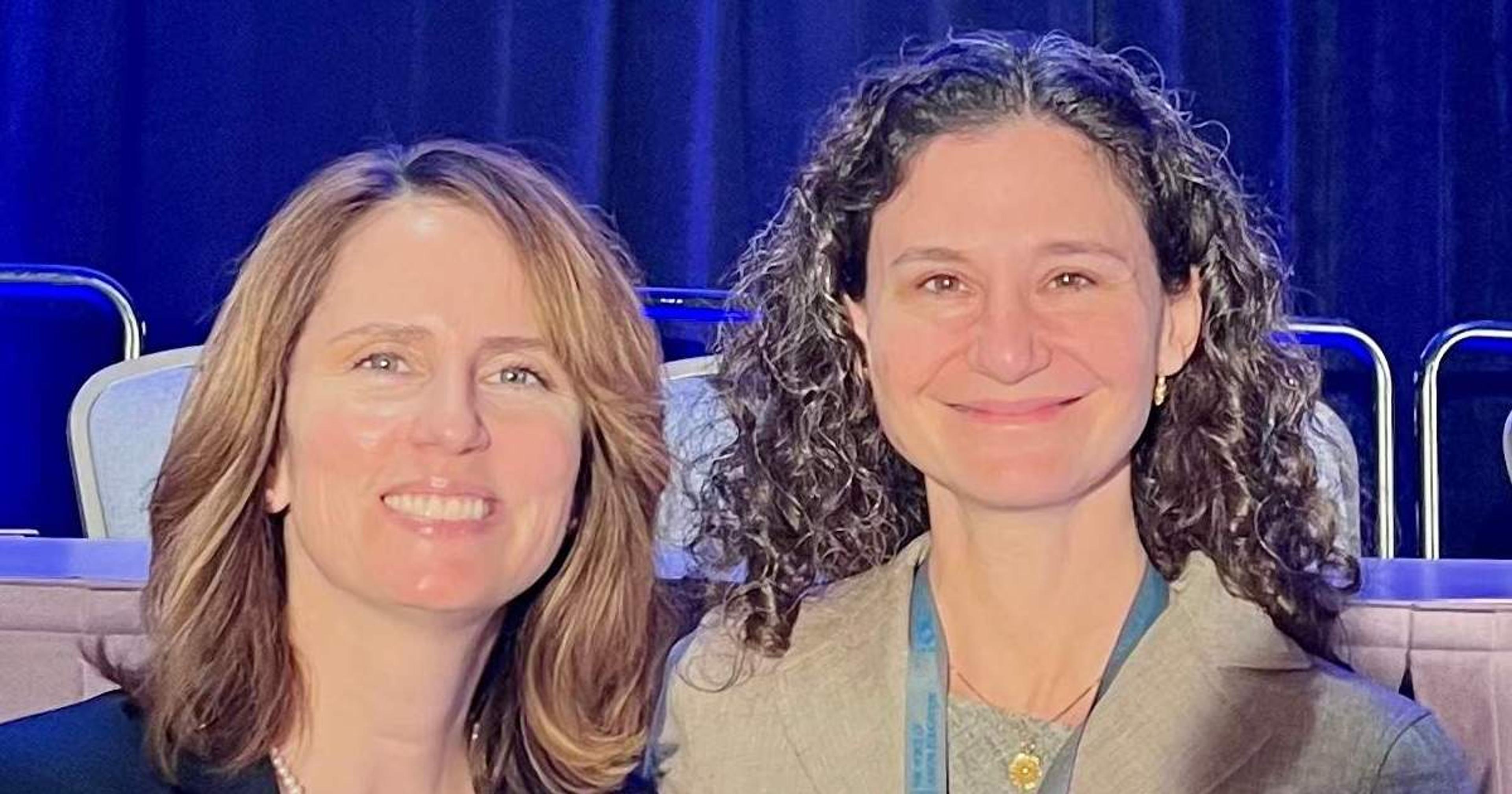How BCBSM and Other West Michigan Companies Are Helping Military Veterans Find Employment
Julie Bitely
| 7 min read

Cathy Nichols didn’t start her professional career in an office. The Blue Cross Blue Shield of Michigan Customer Service Manager learned how to be a valued team member and leader as a Radar Technician on F4 Fighter Jets in the Marine Corps. During her 4 ½ - year tenure, Nichols served in Hawaii and various other destinations. “Traveling was what I wanted to do and I got to do it,” she said. She worked for companies such as UPS after serving in the military. Family brought her back to Michigan in 1991, the same year she started working at BCBSM as a mail clerk. Nichols worked her way up through customer service to eventually become team leader and manager. She said the biggest difference she encountered in her transition from military life to corporate work was a difference in how employees respond to leadership and direction. It used to throw her off guard when someone would question her about something she’d asked them to do. “In the military, you just did it,” she said. “There was no questioning.” She also noted similarities, particularly in guiding and leading a team to work together. Nichols said she tries to foster camaraderie and support for employees who report to her, often presenting leadership opportunities so they can grow in their careers. In the military or in an office, “you can’t do it all by yourself,” she said.
West Michigan BCBSM Leadership Commits to Increasing Veteran Employment
In today’s corporate environment, being able to work as part of a team, the ability to multi-task under stressful conditions, and creative problem solving are all highly valued skills. Employers should consider that returning military veterans likely possess all those attributes and more. To that end, BCBSM has submitted an application to be recognized as a veteran-friendly employer as defined by the Michigan Veterans Affairs Agency. Several Blue Cross Blue Shield of Michigan executives are working directly to ensure vets are part of the picture when it comes to hiring at the company and across West Michigan. They’re taking part in a veteran employment task force started under the non-profit organization Talent 2025. Formed in 2010, Talent 2025 has a broader mission for “West Michigan to be globally recognized as a top 20 region in the U.S. where entrepreneurship thrives, and employers want to be, because diverse talent wants to work, learn, and live here.” The organization counts more than 70 business leaders in its ranks spread across 13 West Michigan counties. BCBSM representatives are joined by leaders from places such as Amway, Goodwill Industries, Spectrum Health, Grand Valley State University, Aquinas College, and Haworth. Those are just a handful of the employers the group has brought together to solve a common problem of developing a world-class employee pool to draw from. Leading BCBSM’s involvement is Jeff Connolly, Senior Vice President, Large Group Business and President, West Michigan. Connolly serves as the executive co-chair of the veteran employment working group with Goodwill Industries of Greater Grand Rapids’ President and CEO Kathy Crosby. Kellie Norton, BCBSM Director, West Michigan/Upper Peninsula Administration and Celeste Hurst, Senior Talent Acquisition Consultant, are working with Connolly on various initiatives as part of the veteran employment working group. “Making sure the men and women who serve our country have the skills and access to pursue worthwhile employment is a goal I’m deeply committed to,” Connolly said. “From the standpoint of an employer, we know that veterans are hard-working, loyal, and highly skilled. What we hope to achieve through the Talent 2025 veteran employment task force will not only help veterans find good jobs, it will help Blue Cross Blue Shield of Michigan and businesses across West Michigan discover really great, committed workers.”
Helping Veterans Transition to Civilian Work
The veteran employment task force is working to connect the dots for veterans so they can easily access resources to apply for and find a job, go back to school, or take advantage of other services such as health care. Norton explained that veterans don’t always know how to translate their military skills to a resume or an interview setting. She said initiatives such as resume-writing workshops and career expos can help veterans bridge that gap by helping them better sell themselves in language an employer understands. “It’s getting to those things that matter in the business world that are everyday to the veterans,” she said. She used the example of veterans listing their military pay grade on a resume. While a military recruiter would understand where someone would fit in an organization based on a pay grade from E-1 (most junior) to E-9 (most senior), business leaders without military backgrounds don’t understand that distinction. “That means nothing to me, so I need you to explain that to me in words that connect to something business related,” Norton said. Hurst echoed Norton’s observation that veterans sometimes have a difficult time expressing their abilities to employers. “We’re still learning and understanding and trying to interpret the transferrable skills and experiences of the positions veterans held in the military to match them to the corporate world,” Hurst said. “Employers need to be educated accordingly, including our hiring managers.” “While there are definite barriers for veterans in getting and keeping jobs, retention is an even bigger issue that isn’t really being addressed by companies,” Hurst added. This is especially true for veterans experiencing post-traumatic stress disorder (PTSD) or mental illness as a result of their service. Employers need to be aware of these issues so they can appropriately address cases taking into account Americans with Disabilities Act guidelines and diversity and inclusion measures. Hurst is also part of a West Michigan Veterans Coalition, serving on an employment subcommittee. That group is planning a networking event in February for veterans and employers that they hope will be a less stressful, fun, and relaxing experience for job seekers, unlike a traditional job fair. She’s also been attending job fairs on behalf of BCBSM such as a September Hiring Our Heroes event in Grand Rapids.
Veterans Contribute to a Diverse, Well-Rounded Workplace
From a human resources standpoint, Hurst said having a workforce population that mirrors the general population is a top goal at BCBSM. She’s exploring the addition of a veterans group to an already established system of employee resource networks (ERNs). Current ERN groups within the company provide networking and support opportunities for multicultural, POWER (Professional Optimistic Women Exploring Resources), LGBT, and other groups. A veterans group could help identify issues members are having in their careers and provide a pathway to find support and have their unique needs addressed. Connolly explained that veterans have a unique outlook and perspective when it comes to diversity because they’re exposed to so many different people and cultures through their service. Vets tend to have a high level of cultural sensitivity and acceptance for differences. They often become champions of diversity initiatives inside organizations because of their experiences. “They bring a huge asset to companies who are trying to invest in diversity,” he said.
Recognizing Service Can Lead to a Strong Workforce
For veteran Nichols, independence, responsibility, and accountability are traits she knows many fellow service members share. While applicants don’t have to disclose their military service on a resume, it always stands out to her when they do. “You’ve got folks who put their lives on the line for others,” she said. “When we get resumes, as soon as I see military service, I move them to the top. You’ve still got to prove yourself (through the interview process), but I’ll give you the benefit of the doubt.”
Find More Resources
See Jeff Connolly discussing issues related to veterans’ employment and talking about the Talent 2025 initiative in this video, filmed at the 2013 Governor’s Summit on Veterans. If you’re a Michigan veteran seeking employment or other services, visit Michigan.gov/veterans for information about state and federal benefits and other resources. Want to know more about how diversity is valued at BCBSM? Listen to a conversation about how we put it into practice and get tips on how to run a successful diversity program at your workplace. Photo credit: U.S. Army Garrison Yongsan





